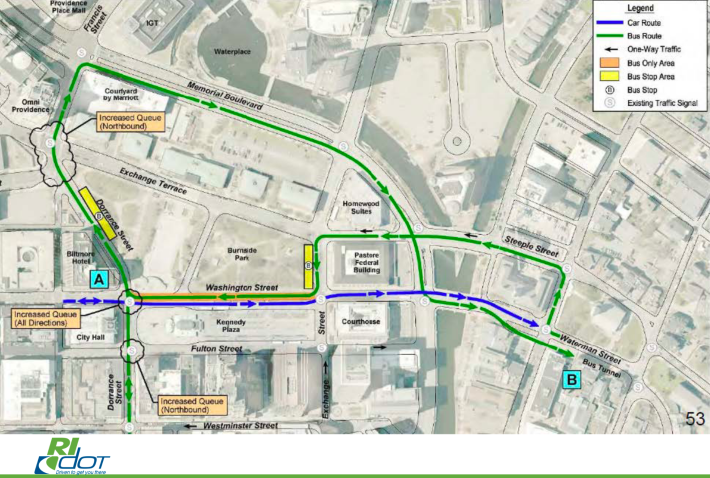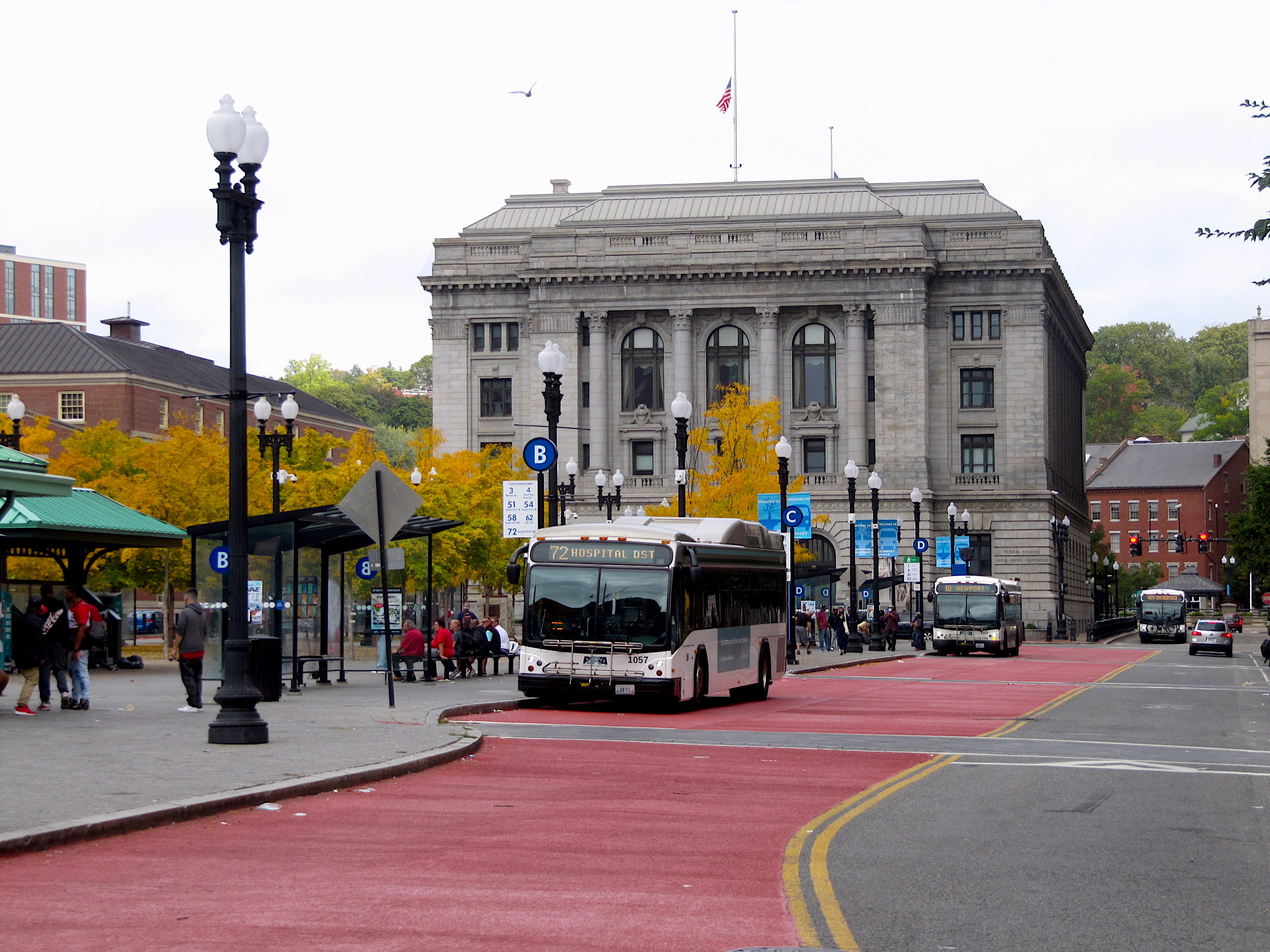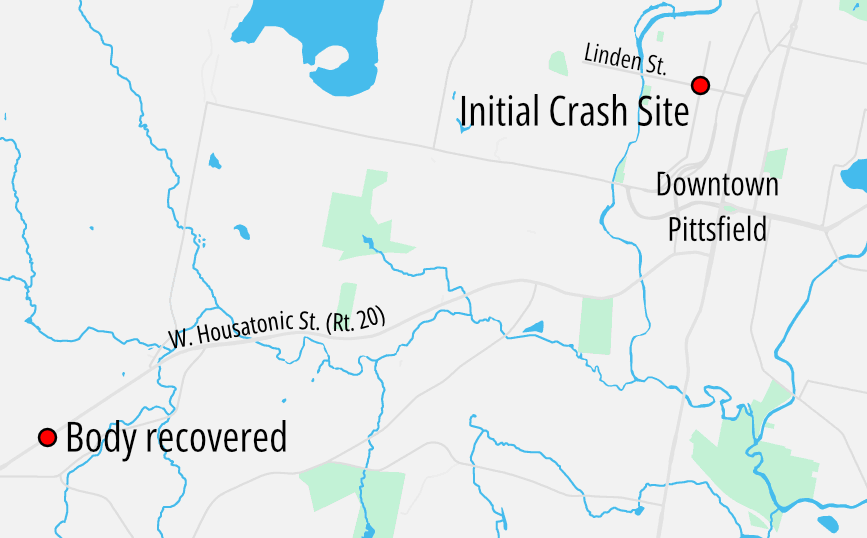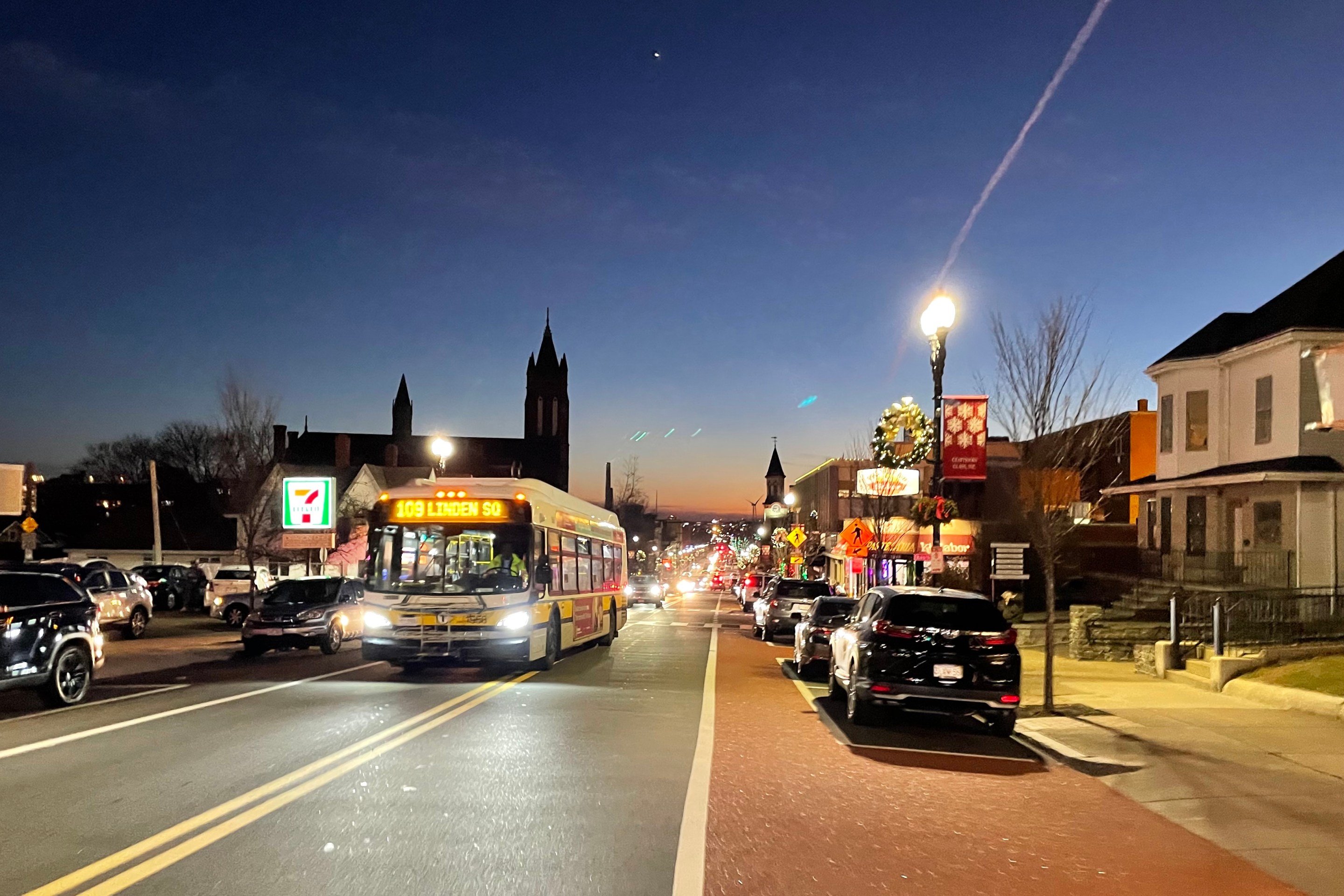
If you've ever ridden a bus in Rhode Island, there's a good chance you've traveled through Kennedy Plaza in downtown Providence: it's the smallest state's biggest transit hub, serving roughly 1,400 daily bus trips for RIPTA, the statewide transit agency.
With over 15,000 boardings on a typical weekday, Kennedy Plaza ranks among New England's busiest transit hubs, with more riders than several of Boston's downtown subway stations.
But a controversial new plan from the Rhode Island Department of Transportation (RIDOT) could significantly diminish Kennedy Plaza's role in the RIPTA bus network.
Many details are still vague, but according to some of the few publicly-available sketch plans, Kennedy Plaza's block-long transit hub (pictured above) would be relocated and shrunk into six bus pullouts around the edges of the adjacent Burnside and Biltmore Parks.

At the same time, RIDOT would build two other bus hubs, each roughly a quarter-mile away from Kennedy Plaza. One new bus hub would be constructed to the north, at Providence's train station, and another would be built to serve the city's growing "Innovation District" along the Providence River to the southeast.
RIDOT says it wants to begin construction as soon as next summer.
The changes will likely necessitate major adjustments to RIPTA's bus routes, two-thirds of which currently stop in Kennedy Plaza.
But there is no information about the plan anywhere on RIPTA's website or on RIDOT's website. And even the state bureaucracies that are pushing the plan say they don't know how the plan would affect riders.
When StreetsblogMASS inquired which routes would be affected, and how, Barbara Polichetti, Director of Public Affairs for RIPTA, referred the question to RIDOT.
Five days later, Lisbeth Pettengill, a spokesperson at RIDOT, also declined to answer the question, explaining that "RIPTA will be your best source for specific bus routes affected."
The state's multi-hub plan "hasn’t been vetted by transit users whatsoever - there have been no public hearings," says Liza Burkin, the lead organizer for the Providence Streets Coalition. "The diversity of opposition is everywhere from neighborhood groups, environmental groups, social justice groups, even downtown business owners. Nobody understands where the support for this is coming from, and why the state is plowing ahead."
Among the more prominent opponents are Providence's own City Council, which voted overwhelmingly in October to oppose the RIDOT plan.
"While the stated goals of the project are admirable, there has been significant opposition voiced by many members of the community regarding the viability of the project and potential adverse impacts on ridership, connectivity and the overall user experience," states the council resolution.
A vibrant public space – but for whom?
One of the few proponents of the plan is former Providence mayor Joseph Paolino, a real estate heir whose company controls several prominent downtown properties, including a 1980s-era office tower adjacent to Kennedy Plaza.
"I look at this as an opportunity to try to do some good things," said Paolino in a phone interview with StreetsblogMASS. "Kennedy Plaza should be used for other things. It should be a place people want to visit, like Bryant Park in New York. I want to see this be a useful park, but the way it is now, I think it's just a waste."
It's telling how Paolino's perspective – that Kennedy Plaza is "a waste" – ignores the utility of the current transit hub for thousands of RIPTA riders every day.
The real problem may lie with how its public spaces put the state's brutal inequality and other social problems on stark display for the state's political and financial elite, whose offices literally look down on the plaza.
"Kennedy Plaza is probably the one place in Rhode Island where the very poor rub shoulders with the very rich," says John Flaherty, Deputy Director of Grow Smart Rhode Island, another critic of the state's "multi-hub" plan. "It's a public transit hub that's surrounded by these office towers in the city's financial district. As a public square, I can understand why a lot of people want to avoid it. We want to see the space improve as a public space and allay those concerns, but transit has little to do with those problems.”
When pressed to explain how moving some bus stops around would help Providence address its deep-seated problems with housing insecurity and substance use disorders, Paolino admitted that RIDOT's plan was unlikely to have much impact.
"Whatever’s done, we all need to recognize there’s a societal challenge - not just in Providence. We have to embrace trying to find help for the people who need help," says Paolino.
Possible Civil Rights Act challenges
In spite of snowballing criticism and the ambiguity of the plan's details, RIDOT and Governor Raimondo held a press conference earlier this month to recommit to their plan.
"We are moving forward with our multi-hub transportation proposal in Providence," said Raimondo.
But while RIDOT wants to break ground on a project next summer, several hurdles still exist. First among them are federal "Title VI" Civil Rights Act requirements, which prohibit discrimination "with regard to the routing, scheduling, or quality" of transit route changes.
In a November 13 letter to Governor Raimondo, the Rhode Island Chapter of the American Planning Association warned that "this proposal is harmful to people of color and people of lesser means," and that RIDOT's approach "opens up RIDOT, its contractors, and other involved agencies to violations of Title VI of the 1964 Civil Rights Act and Executive Order 12898, the Executive Order on Environmental Justice."
Meanwhile, a growing coalition is focused on exerting political pressure on RIDOT – both through the Governor's office, and through the state legislature.
"We want, first, for the Governor and RIDOT to withdraw this flawed plan, and second, for them to commit to an open and transparent public process going forward," says Flaherty of Grow Smart Rhode Island. "If we can get this plan shelved, and an open public process, we can get something done in a way that works for everybody."






